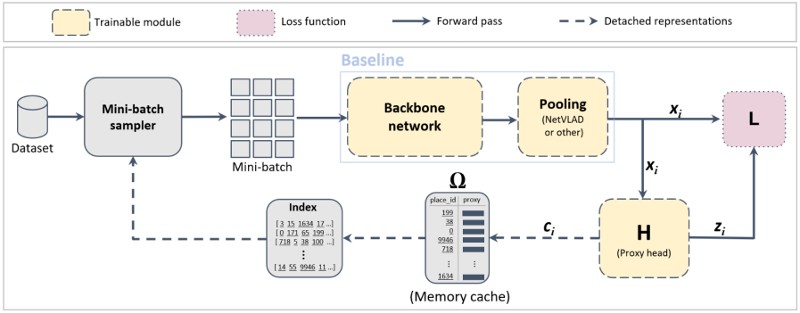Global Proxy-based Hard Mining for Visual Place Recognition
Learning deep representations for visual place recognition is commonly performed using pairwise or triple loss functions that highly depend on the hardness of the examples sampled at each training iteration. Existing techniques address this by using computationally and memory expensive offline hard mining, which consists of identifying, at each iteration, the hardest samples from the training set. In this paper we introduce a new technique that performs global hard mini-batch sampling based on proxies. To do so, we add a new end-to-end trainable branch to the network, which generates efficient place descriptors (one proxy for each place). These proxy representations are thus used to construct a global index that encompasses the similarities between all places in the dataset, allowing for highly informative mini-batch sampling at each training iteration. Our method can be used in combination with all existing pairwise and triplet loss functions with negligible additional memory and computation cost. We run extensive ablation studies and show that our technique brings new state-of-the-art performance on multiple large-scale benchmarks such as Pittsburgh, Mapillary-SLS and SPED. In particular, our method provides more than 100% relative improvement on the challenging Nordland dataset. Our code is available at https://github.com/amaralibey/GPM
PDF Abstract







 Mapillary Vistas Dataset
Mapillary Vistas Dataset
 Nordland
Nordland
 GSV-Cities
GSV-Cities
